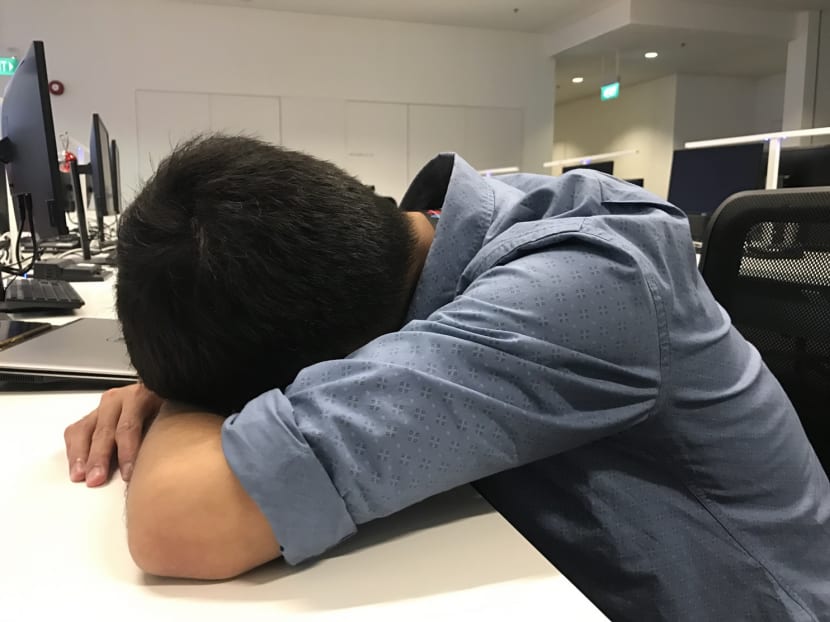How climate change disrupts our sleep
While the consequences of climate change on the planet are well established, its effects on health are less well understood.
While the consequences of climate change on the planet are well established, its effects on health are less well understood.
Death rates rise during heatwaves, especially among the elderly, who find it harder to regulate their body temperature, and now scientists believe that the quality of our sleep may suffer as the planet warms.
By analysing people’s self-reported quality of sleep, researchers have found that disturbed slumber occurs more frequently when the ambient temperature is higher, and that such disruptions disproportionately affect the elderly and those on low incomes.
The paper, published last month in Science Advances, claims to provide “the first evidence that climate change may disrupt human sleep”. Such disruption would have knock-on effects: A lack of sleep is implicated in cardiovascular disease, diabetes, obesity and mental illness.
Mr Nick Obradovich, a political scientist at the Belfer Centre for Science and International Affairs at Harvard University, and his colleagues drew on data collected routinely by the United States Centres for Disease Control and Prevention (CDC). About 765,000 respondents in the US were asked to recall their quality of sleep over the previous month. The researchers correlated those responses with temperature data for the same periods. Anomalously warm nights, they found, were associated with disturbed sleep.
Since the CDC data also contained ages and incomes, they were able to discern that older people and poorer individuals — those on less than US$50,000 (S$69,000) a year — reported a higher incidence of insufficient sleep.
The link with income could be influenced by many factors: Poorer households might be less likely to have air- conditioning, or its members more likely to hold multiple low-paid jobs, perhaps with long hours.
What does this correlation mean for the future? The researchers predict that, by 2050, if the temperature rose by one degree, there could be an additional 110 million nights of disturbed sleep across America each year. The effects in the US might be a low estimate, given that other countries are predicted by climate models to undergo steeper temperature rises.
There are caveats: The data was self-reported rather than obtained objectively through monitoring in a sleep lab, and the analysis takes no account of disorders such as sleep apnea.
In addition, 110 million disturbed nights constitute a minuscule fraction of the more than 110 billion nights racked up by Americans annually. Regardless, other academics have hailed it as an inspired piece of number-crunching, and a faint portent of what may come.
Between 2030 and 2050, the World Health Organisation (WHO) predicts that there will be an extra 250,000 climate-induced deaths annually, due to malnutrition, malaria, diarrhoea and heat stress.
The most basic contributors to health — defined as clean air, safe drinking water, sufficient food and secure shelter — are all threatened. On top of that, higher temperatures lock ozone, pollen and other pollutants into the air, darkening the outlook for cardiovascular disease and respiratory diseases such as asthma.
With half the world’s population living within 60km of the sea, WHO says the mass movement of displaced people creates fertile conditions for diseases such as cholera to spread. Changing rainfall patterns interrupt water supplies.
Drought kills crops, hampering food production; floods and hurricanes destroy medical centres and health infrastructure, as well as killing and injuring. Mosquitoes and other carriers are expanding their geographical reach, exposing new populations to unfamiliar diseases.
Sleep may seem a trivial issue in comparison — and, in the global scheme of things, it is. But, for those fortunate enough to be in good health in developed countries, shut-eye matters.
It boosts the immune system and keeps weight in check (levels of leptin, the hunger hormone, tend to be higher in the sleep-deprived). Chronic sleep debt — a succession of bad nights — increases the risk of anxiety and depression.
Those who sleep fewer than five hours a night are thought to be at higher risk of type 2 diabetes, because of the impact on glucose regulation. Finally, if none of that appeals, older women who sleep well report a more satisfying sex life.
Eight hours is the usual recommendation, although this varies between people. If you feel tired during the day and crave a nap, you probably need to hit the pillow for longer.
Deepening your relationship with your duvet can also furnish professional advantages. Last year, McKinsey declared that, in this hyperconnected era where work is global, sleep management is an “important organisational topic that requires specific and urgent attention”.
No employer, after all, wants a fatigued grouch who cannot concentrate or remember, or is too exhausted to make smart decisions. Its report revealed that some companies were imposing email blackout times (for example, 7pm to 6am), supplying gadgets to dim the light emitted by screens, installing “sleep pods” to encourage napping and employing IT “tag teams” placed around the globe, with work shifting location with the sun.
Let us hear it from someone at the top of the leadership tree.
“Every important mistake I made in my life, I made because I was too tired,” former US president Bill Clinton once admitted. The less said about that, the better. FINANCIAL TIMES
ABOUT THE AUTHOR:
Anjana Ahuja is a contributing writer on science for the Financial Times.







